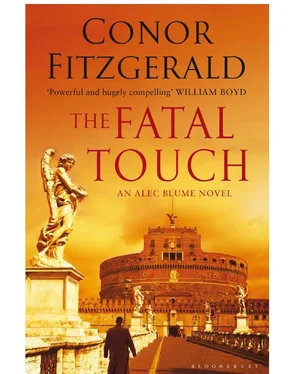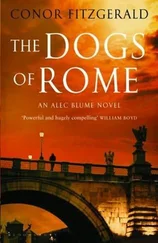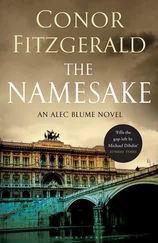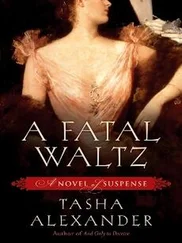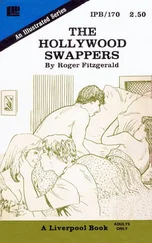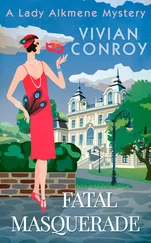Conor Fitzgerald - Fatal Touch
Здесь есть возможность читать онлайн «Conor Fitzgerald - Fatal Touch» весь текст электронной книги совершенно бесплатно (целиком полную версию без сокращений). В некоторых случаях можно слушать аудио, скачать через торрент в формате fb2 и присутствует краткое содержание. Жанр: Полицейский детектив, на английском языке. Описание произведения, (предисловие) а так же отзывы посетителей доступны на портале библиотеки ЛибКат.
- Название:Fatal Touch
- Автор:
- Жанр:
- Год:неизвестен
- ISBN:нет данных
- Рейтинг книги:3 / 5. Голосов: 1
-
Избранное:Добавить в избранное
- Отзывы:
-
Ваша оценка:
- 60
- 1
- 2
- 3
- 4
- 5
Fatal Touch: краткое содержание, описание и аннотация
Предлагаем к чтению аннотацию, описание, краткое содержание или предисловие (зависит от того, что написал сам автор книги «Fatal Touch»). Если вы не нашли необходимую информацию о книге — напишите в комментариях, мы постараемся отыскать её.
Fatal Touch — читать онлайн бесплатно полную книгу (весь текст) целиком
Ниже представлен текст книги, разбитый по страницам. Система сохранения места последней прочитанной страницы, позволяет с удобством читать онлайн бесплатно книгу «Fatal Touch», без необходимости каждый раз заново искать на чём Вы остановились. Поставьте закладку, и сможете в любой момент перейти на страницу, на которой закончили чтение.
Интервал:
Закладка:
Blume offered to help carry the bags, though it was going to be a struggle, what with his own paper load.
“No. Just open the front door,” said Caterina. As soon as he did, she shouldered him out into the hallway.
“Lovely meeting you, Commissioner. Drop by again soon.”
“A pleasure, Mrs. Mattiola,” said Blume.
“Call the elevator,” ordered Caterina.
Chapter 14
Caterina finished stacking dirty plates in the sink. Her kitchen was usually spotless. Well, not spotless, but not like this either.
Blume gave her the details of his talk with John Nightingale.
“So we need to check through the notebooks to find if there is any reference to something both the Colonel and Nightingale would want to keep quiet. But we don’t know if it’s there.”
“Shall we look through them now?”
“Either that, or we systematically read the notebooks from beginning to end, which is probably the best way, because the devil is so often in the details, isn’t it?” said Blume. “If I can, I am going to read them all the way through, but there is a good chance I won’t have time. Also, I have specifically been instructed not to investigate. But before I give up, and it may involve handing over these notes, I want a second pair of eyes. You need to be in the background. Unpaid, unrecognized overtime work, basically.”
As her father liked to say, you wanted a bicycle, now pedal.
Blume opened the first notebook and read in a declamatory tone: “ As William Wordsworth once remarked, the child is the father of the man.”
The phone rang.
“Are you going to answer that?”
“It’s my mother,” said Caterina.
“You can see the caller ID from all the way over there?”
“No, but I can feel it.”
When it had stopped ringing, she pulled her hands out of the sink, and Blume returned to frowning at the notebook. “Already I don’t like this guy, Treacy,” he said.
“The child’s the father of the man,” said Caterina, repeating the words and then continuing unself-consciously in English. “As in what you do as a child determines how you turn out as an adult. What’s wrong with that?”
Her accent sounded slightly English to Blume’s ear.
“I don’t mind that idea,” said Blume. “Or maybe I do. I haven’t thought about it. It’s that bit about Wordsworth remarking it that annoys me. He didn’t remark it, he wrote it.”
“You know the poem?” asked Caterina. “I studied it once.”
“Of course I don’t know the poem,” said Blume in an exasperated tone. “I just know Wordsworth was a poet. So he wrote that line. He didn’t just once remark it in conversation with Treacy in a bar.”
Caterina sat down on the far side of the table, brushed some Weetabix crumbs onto the floor, pushed her straight brown hair back over her ear, took up a pen, and opened a notebook that she had taken from her son’s room with a blue robo-something on the cover.
“If you’re going to critique each line, Commissioner, this is going to take some time.”
“Well, can you read the handwriting?” asked Blume.
Caterina peered at it, shrugged. “It doesn’t look too…”
“Because I think it’s probably easier for me than for you to guess the English words. So if I read a bit and you follow in your copy, you’ll get used to the lettering quickly, then you can go on alone.”
“That seems like a good idea,” said Caterina.
“Great. So we start off like this, then I’ll leave the photocopy here, you read it, I’ll go home and read it. Then we compare notes sometime next week… We’ll play it by ear, basically.”
“Let’s try it, then,” said Caterina.
“Good. I appreciate this,” said Blume. He opened the first notebook and began to read, struggling over some of the first sentences, but then finding his flow as he familiarized himself with the handwriting.
“As William Wordsworth once remarked, the child is the father of the man. When I look back down the years, I see a strange nine-year-old boy whom I barely recognize. Yet it was he who decided how my life would be, and all because of his crush on an eight-year-old girl.
“The eight-year-old was called Monica, which was a very exotic name for Ireland in the fifties. I first became aware of my love when I was in ‘high babies’ (which, for the uninitiated, is one year above ‘low babies’). She wore an orange dress with a round lace patterned white collar.
“One day, Miss Woods, our art teacher, set us the task of drawing our favorite objects, as many of them as we saw fit. We had three lessons in which to complete our drawings. If deemed worthy, they would be pinned to the walls for sports day when parents would be allowed to come into the school to watch the children do long jumps that can’t have been all that long, and run egg-and-spoon races.
“Miss Woods allowed us only dark colors to begin with, though we were free to use crayons or pencils. She told us we could do the coloring-in during the next two lessons. I observed Monica carefully, noting the objects she chose to draw; I watched the yellow pencil in her beautiful fingers as she glided her hand over the page leaving careful gray outlines. Most of the other children were still using their fists as they sought to keep their waxy red and blue crayons under control.
“During the second lesson, when it seemed Monica had finished outlining her objects and was preparing for the coloring-in phase, I neatly divided my page into four columns and five rows: 20 boxes in all. In the first box, I drew an exact replica of Monica’s entire page, in miniature, without missing out a single object. In the second box, I did the same, only this time I colored in the objects in the way I thought she was likely to choose. In the third box I chose a different color scheme and so on until I had exhausted almost every permutation. When Monica did finish, her picture and colors corresponded exactly to my miniature in box 17. It is still my lucky number.
“Monica’s favorite objects were: a comb (I had kept it brown or black until version 12, when I thought it might be silver), a golden-brown teddy bear with a green bow, a pair of black dancing shoes, a red-haired Raggedy Ann doll, a giraffe, and a blue windmill with white sails.
“Miss Woods loved my work. Mrs. Walsh, the headmistress, did not, dismissing it in front of the whole class as being rather too ‘…’. I did not understand the big word she used that day, and I can’t remember it now.
“But it was clear the bitch did not like it.
“As for Monica, when she realized what I had done, she took her picture down from the wall, ruined it by adding a large and poorly-drawn cat and a purple cabbage tree in the foreground, whereupon she hung it up again.
“I learned three things from that. First, I could draw in another person’s style like it was my own; second, women could be unpredictable and vindictive; third, never imitate a living artist. If I had forgotten the first lesson and remembered the other two, I would have made my own life easier.
“My mother never came to school events and so she never saw the picture. Apart from not having any interest in how I was doing, I think she felt uncomfortable with the ethos of the school. It was Protestant. Church of Ireland, to be precise. My mother was born a Catholic, but no longer practicing. She had not lapsed; rather she had been cast out and thrown over when she became pregnant with me by a man whose name she never revealed to anyone, not even me. After failing to reconcile with her own family and most of her neighbors, she adopted a Bohemian guise, and affected not to care. After a while, assisted by some serious afternoon drinking and several rejection letters from publishers not at all interested in her imagist poetry, she really did not care.
Читать дальшеИнтервал:
Закладка:
Похожие книги на «Fatal Touch»
Представляем Вашему вниманию похожие книги на «Fatal Touch» списком для выбора. Мы отобрали схожую по названию и смыслу литературу в надежде предоставить читателям больше вариантов отыскать новые, интересные, ещё непрочитанные произведения.
Обсуждение, отзывы о книге «Fatal Touch» и просто собственные мнения читателей. Оставьте ваши комментарии, напишите, что Вы думаете о произведении, его смысле или главных героях. Укажите что конкретно понравилось, а что нет, и почему Вы так считаете.
